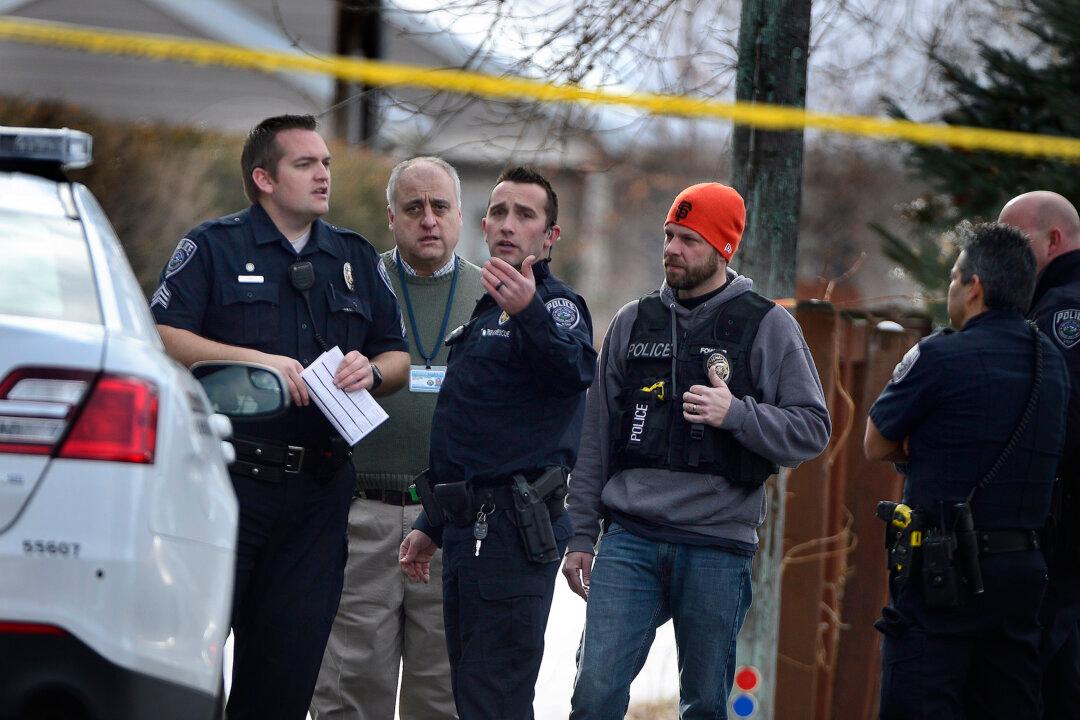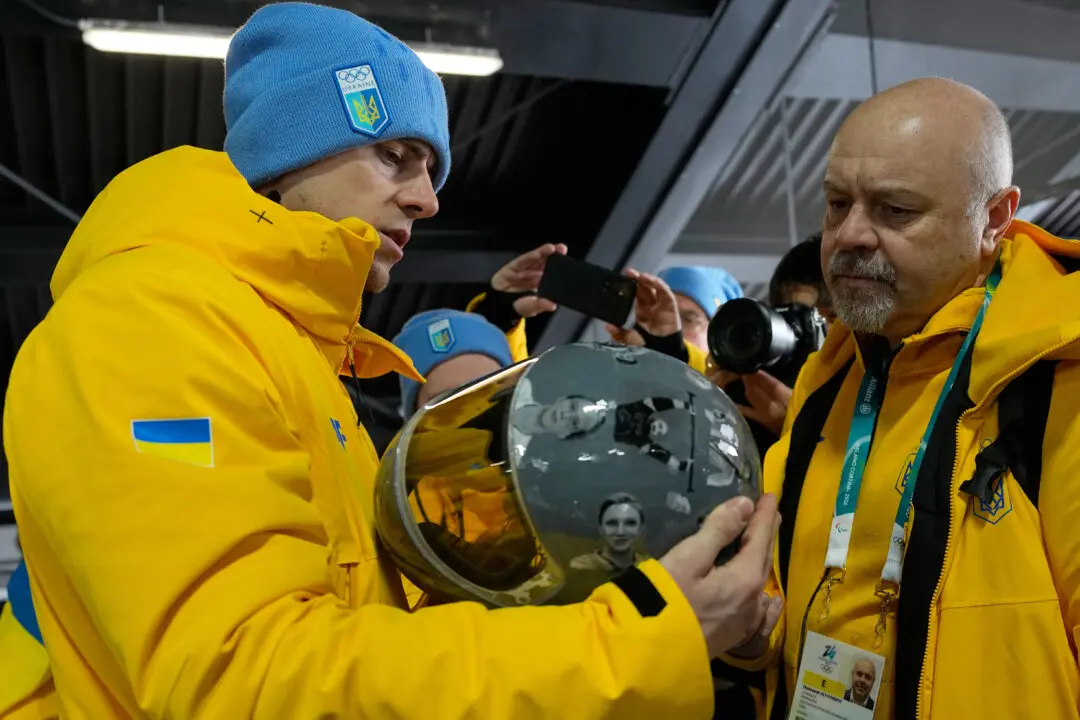
SALT LAKE CITY—A Utah police department is grieving for a fellow officer slain while working overtime to pay for his cancer treatments amid questions about why his shooter was on the streets in the first place, despite a long rap sheet.
Officer Douglas Scott Barney, of Unified Police of Salt Lake County, was killed Sunday after coming across Cory Lee Henderson, who later died in a shootout with other officers.
Henderson, 31, had walked away from a state-run parolee drug treatment center last month. It was his latest cycle through federal prisons and halfway houses as he faced multiple gun and drug-related charges over the past decade.
Gang investigators had tracked him to a Salt Lake City suburb Friday night, but missed capturing him, said Lt. Lex Bell of the Unified Police.
“They’re taking it a little bit hard,” Bell said.
Henderson had run a red light and crashed a car Sunday, then walked away. Barney, 44, who was responding after the crash, was found shot in the head, his gun still in the holster.





